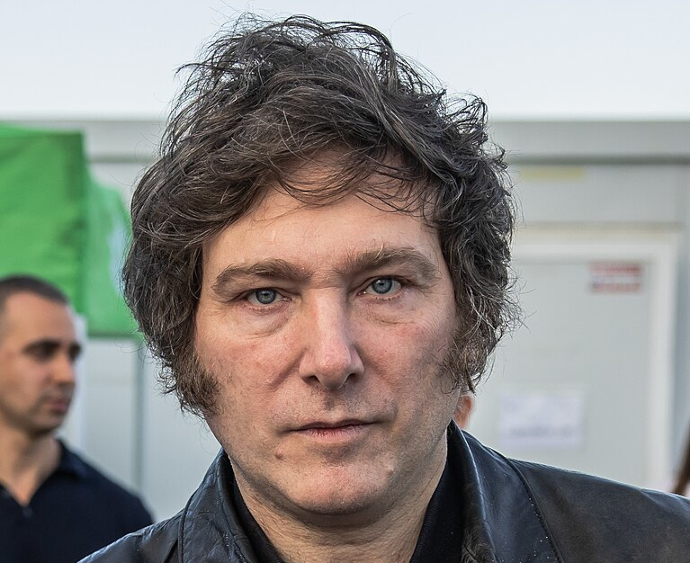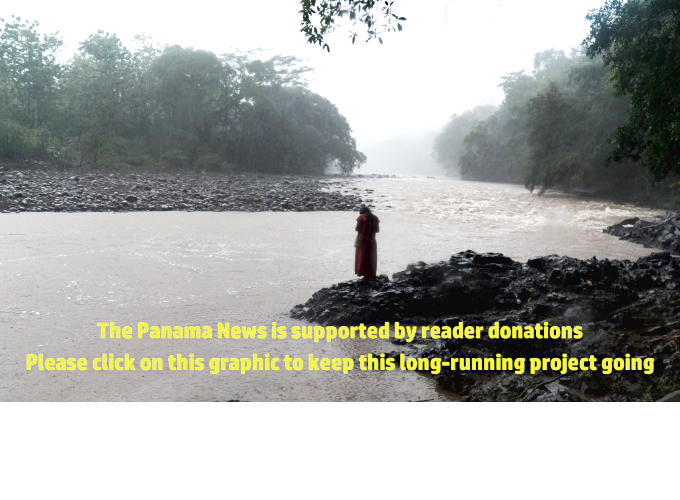Javier Milei in Spain last year. Wikimedia photo by VOX.
Argentina: “No one so extremist on economic issues has been elected president of a South American country”
by Mark Weisbrot — Center for Economic Policy and Research
The possible election of the extreme-right candidate Javier Milei in Argentina’s election on Sunday poses an unprecedented threat to the people and country, says economist Mark Weisbrot, Co-Director of the Center for Economic and Policy Research.
“No one so extremist on economic issues has been elected president of a South American country,” he said.
Milei is on the record saying that he would abolish the Central Bank, a move that would radically go against the consensus of PhD economists worldwide, and that alone could cause economic havoc.
“His extremist views and values go far beyond macroeconomic policy — he hardly acknowledges any legitimate role for government in some of the most important policies that most people have come to see as necessary for a democratic, humane, and stable society,” said Weisbrot.
In an interview last month, Milei stated, “Every time the state intervenes, it’s a violent action that harms the right to private property and in the end, limits our freedom.”
According to Milei, this applies to trying to “fix the problem of hunger” or “fix the problem of poverty,” or employment.
Milei defines socialism to include almost any government action other than military or police functions: “Argentina is a country that has embraced socialist ideas for the last 100 years,” he said.
“Social justice,” not just “socialism,” is “abhorrent” to Milei … “what is social justice, truly?,” Milei asks. “It’s stealing the fruits of one person’s labor and giving it to someone else. So it means two things. First, it’s stealing. The problem with that is that one of the Ten Commandments is ‘thou shalt not steal.’ To support social justice is to support stealing. So one problem is that it violates the Ten Commandments.”
As for climate change, Milei has said, “It’s another one of the lies of socialism.” He’s also said, “There is a cycle of temperatures … a cyclical behavior … and therefore all the policies that blame humans for climate change are false.”
According to Milei, abortion, which was only made legal in Argentina in 2021, is murder: “As a matter of mathematics, life is a continuum with two quantum leaps, birth and death. Any interruption in the interim is murder.”
According to polling data, many Argentines support Milei in the hope that he will fix the economy and bring down high inflation. But historically, it has been his opponents who have followed a progressive agenda that has boosted the economy, after right-wing governments have gotten macroeconomic policies seriously wrong. This has been true over the past 20 years, as can be seen in multiple data series.
For example, Argentines suffered through a depression from 1998 to 2002, comparable to the US Great Depression, under a neoliberal program. More than 65 percent of the population fell below the poverty line, in a country that previously had one of the highest incomes in the region.
As Weisbrot has noted previously, in the 12 years that followed, there was a decline of 71 percent in poverty, and an 81 percent decline in extreme poverty, according to independent estimates. The government instituted one of the biggest conditional cash transfer programs for the poor in Latin America. According to the International Monetary Fund, GDP per capita grew by 42 percent, almost three times the rate of Mexico. Unemployment fell by more than half, and income inequality also fell considerably. There were large increases in living standards for a vast majority of Argentines, by any reasonable comparison.
This was under administrations headed by the Kirchners (Néstor and then Cristina Fernández), whom Milei refers to as “socialist” or “communist,” but are more commonly defined as part of the broad-based Peronist political movement.
The right-wing government of President Mauricio Macri took office in 2015 and did not do well at all, doubling the country’s foreign public debt as a percent of GDP (to 69 percent), including taking out the largest loan ever from the IMF, in 2018. By following the policies specified in the loan agreement, the government pushed the economy into recession. The IMF then doubled down on tightening fiscal and monetary policy, and the economy shrank further. Poverty increased by 50 percent. Inflation rose to 54 percent for 2019.
The Peronists were reelected in December 2019, oversaw a COVID recession in 2020, and then a sharp rebound in 2021, but have run into trouble since the second half of 2022. Annual inflation surpassed 140 percent in October.
“Much of the current crisis in Argentina is a result of what happened during the Macri administration, including unsustainable borrowing combined with large-scale capital flight, as well as an inflation-depreciation spiral that takes on a momentum of its own,” said Weisbrot. “But a crazed, economically suicidal approach would only make things worse — and as Argentina has experienced, things can get a lot worse.
“Milei displays a callous disregard for most people’s living standards, values, and well-being, as well as a commitment to widely discredited economic policies, that is unprecedented.”
A Milei presidency may also pose a threat to human rights in Argentina. He, and more strongly his vice presidential candidate, Victoria Villarruel, have made statements indicating sympathy with the violent military dictatorship that ruled the country from 1976 to 1983.
Contact us by email at fund4thepanamanews@gmail.com
To fend off hackers, organized trolls and other online vandalism, our website comments feature is switched off. Instead, come to our Facebook page to join in the discussion.
These links are interactive — click on the boxes












